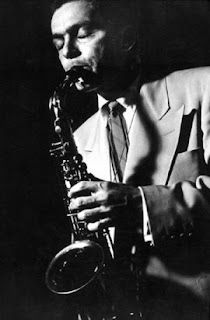Funny Little Snake in The New Yorker
SUMMARY
Gil (or Gilbert) a 50-year-old history professor,
divorced and remarried, feels his duty to invite her only child, a 9-year-old
daughter with his first wife and whom he hasn’t seen for 5 years, to spend a
few days with him and his new young wife, Valerie, in their house in the north
of England, away from London, where his ex-wife lives.
Gil drives to pick up his daughter Robyn, but then,
once he’s at home, leaves her to the absolute care of his wife, with the excuse
of too much work. Valerie, who didn’t know anything about her nor about
children in general, can see now that Robyn is a poor very underdeveloped shy
child and is puzzled about how to deal with her. But she tries to do her best.
The day to take her back to her mother arrives, and Gil
again, with the excuse of too much work, asks Valerie to do the errand and take
the girl back to London by train, and that isn’t a short trip.
So to London they go. There Valerie discovers what
kind of person is Marise, Robyn’s mother: a sophisticated ex-hippie who is living
with a much younger musician, Jamie, and who doesn’t know her anything about
the duties of a parent. Now Valerie understands why the girl is so immature in
body and mind.
Valerie has to spend the night at her mother’s intending
to go back home the next day, but the next day is snowing, and the trains
aren’t working very well, so she has to wait in London. She doesn’t like being
with her mother and doesn’t know what to do in the meanwhile. She goes for a
walk, and her steps, or her tube, takes her unconsciously to Marise’s. Not
knowing why and how, now she’s standing near the house. Robyn is looking out of
the window and, after a while, sees Valerie and starts to wave frantically at
her. Suddenly, Valerie is thinking about rescuing her.
Is she really going to try and rescue her? What will Marise say and do? What about Jamie? And Gil, would he like Valerie’s idea?
QUESTIONS
How does the narrator show that Robyn is a defenceless
child?
Is there any irony in the character’s names? Robyn,
Valerie, Gil (Gilbert) Hope, Marise, Jamie…
What kind of relationship is there between Gil and
Valerie? How do you know?
And with Marise? Why did they get married, and why did
they separate? Why does Gil hate Marise so much now?
Do you think it’s possible to be leftist in politics
and traditional or rightist in personal questions?
Gil married two uneducated wives: Why do you think he
did so, being himself so educated?
What do you think about this: is a self-made man more
or less tolerant with people who haven’t been able to go up in life?
What does Gil think about his mother? And Valerie
about hers?
What kind of toys did Robyn have? What games did she
play?
In your opinion, why does Gil talks about himself in
the third person when he’s asking for a favour to Valerie?
According to Valerie, “important men had to be selfish
in order to get ahead”. What is your point of view about this?
What are the differences between sitting room
and drawing room? And about tea (in the afternoon / evening) and supper
or dinner?
Why do you think Marise and Jamie are partners? Is
there love between them?
Does Marise love her child? How do you know?
Do you think Valerie has different manners with Gil
when she’s at home from when she’s at Marise’s?
What is the relation of the title with the story?
What is the symbolic meaning of the “stuffed birds and
that horse” at Marise’s?
What is the meaning of “Gilbert sitting there steering
along in the little cockpit”?
Does the snow and the end of the story work as a
symbol? What symbol?
In your opinion, what is going to happen when Valerie gets home with Robyn? How is Gil going to react?
The last sentence says: “Just for the moment, though, the child was inconsolable”? Why was she so?





